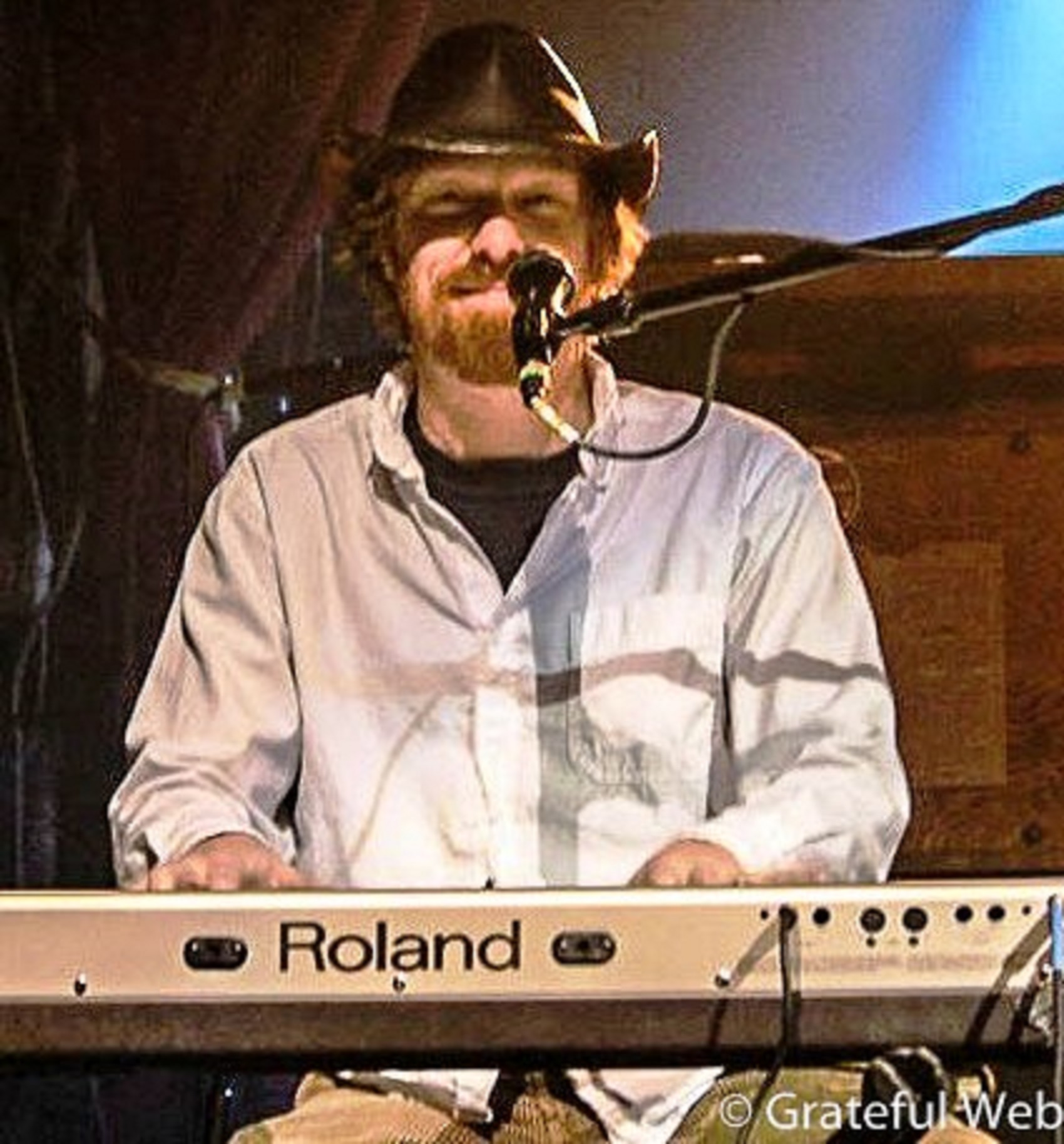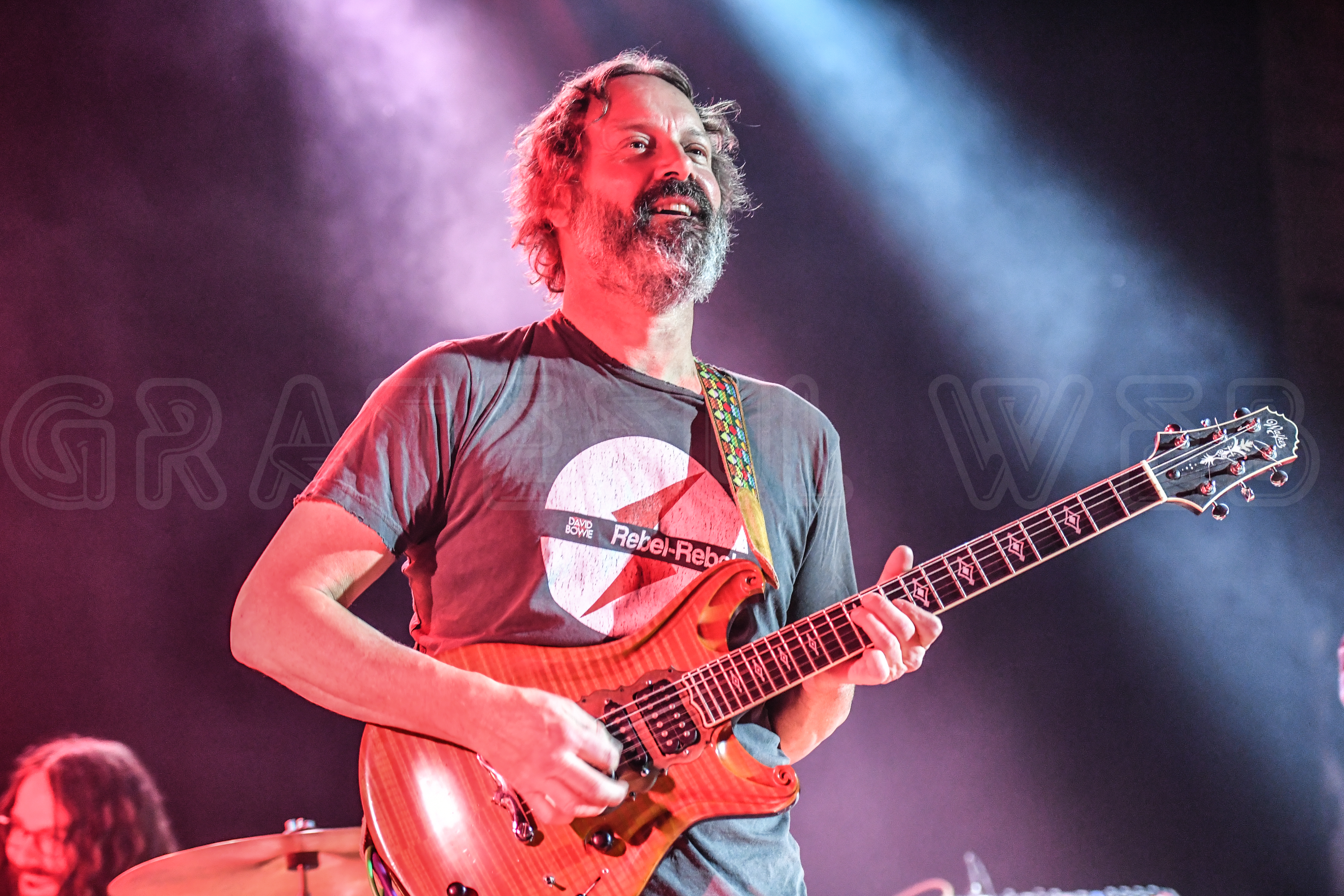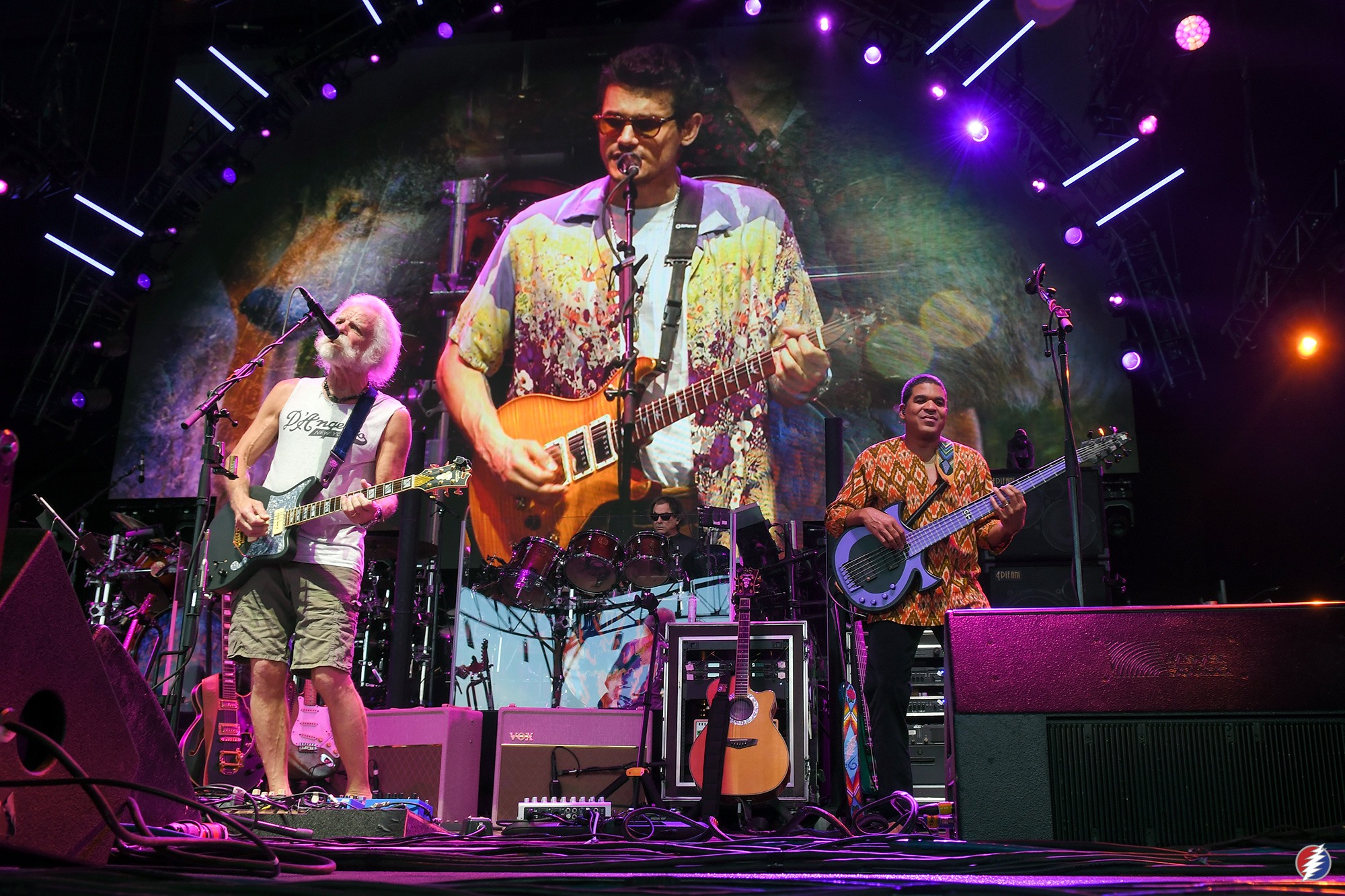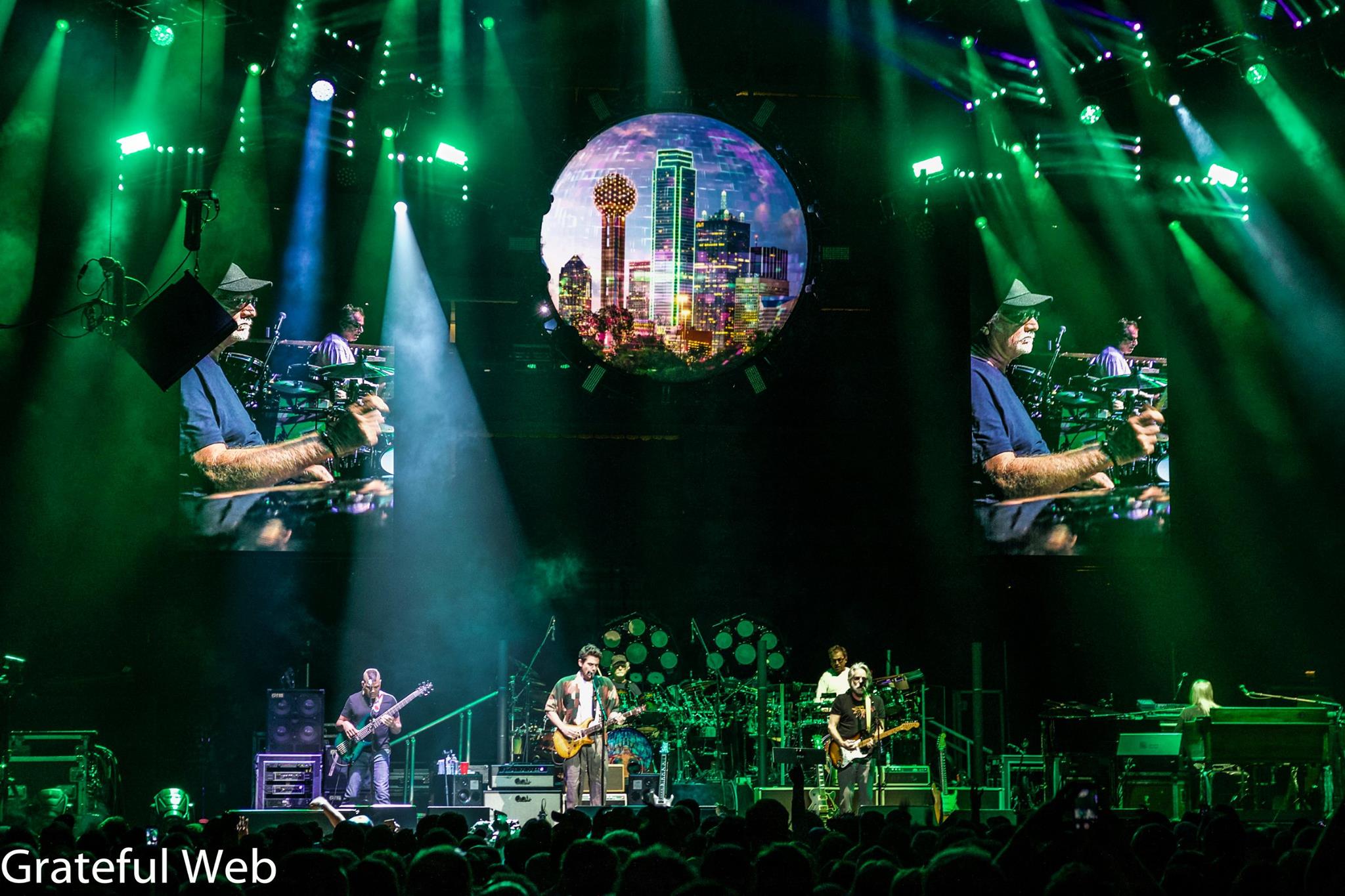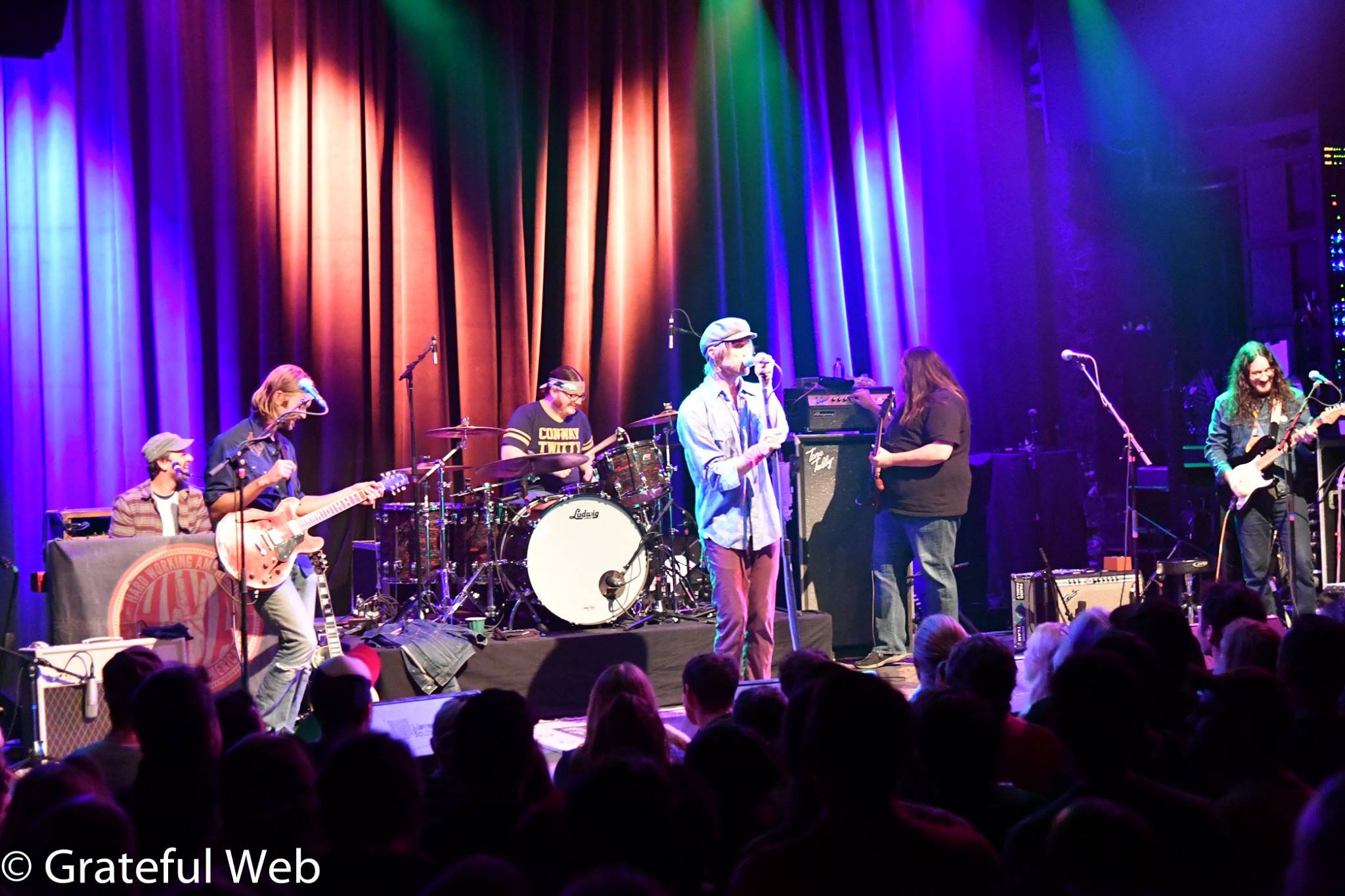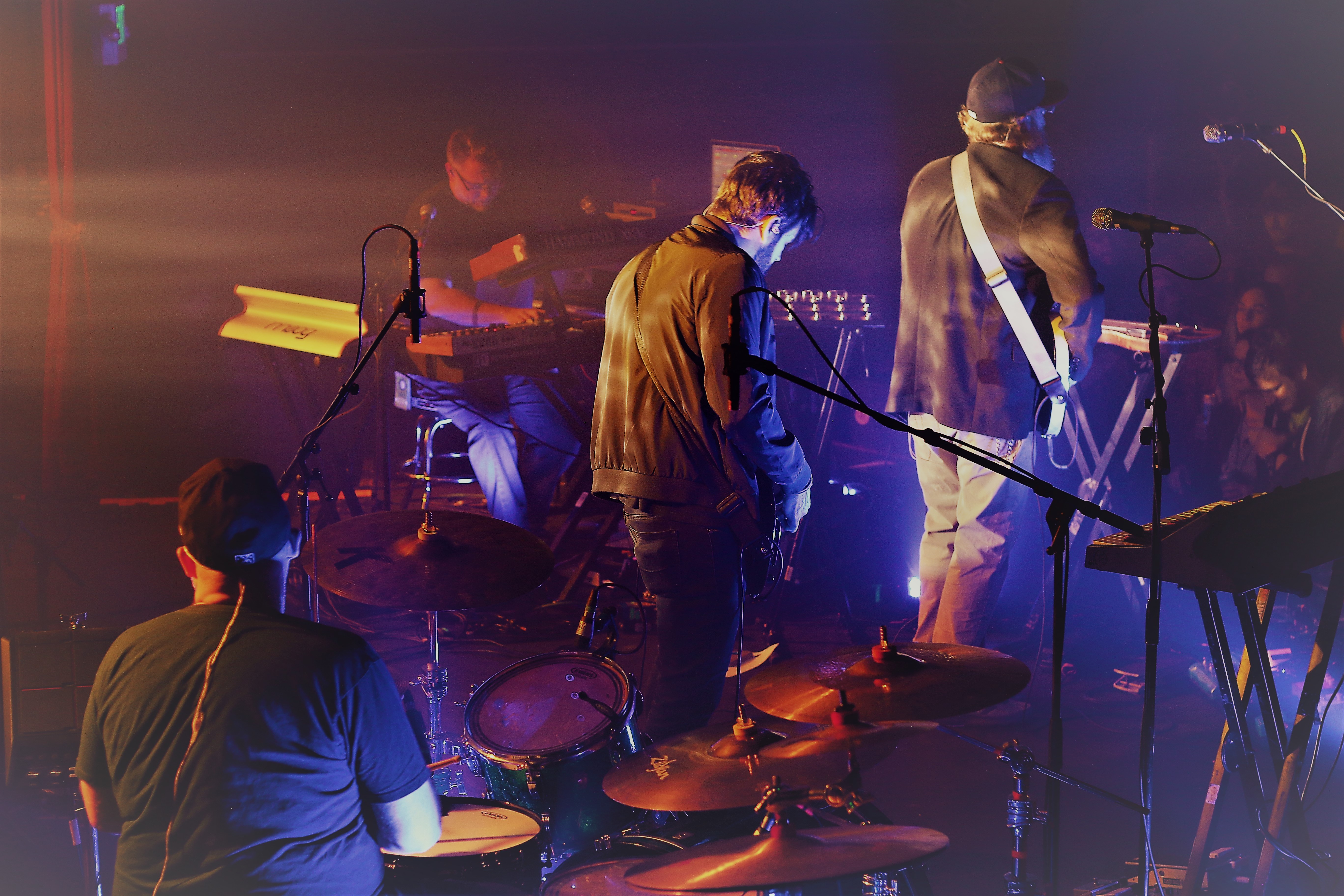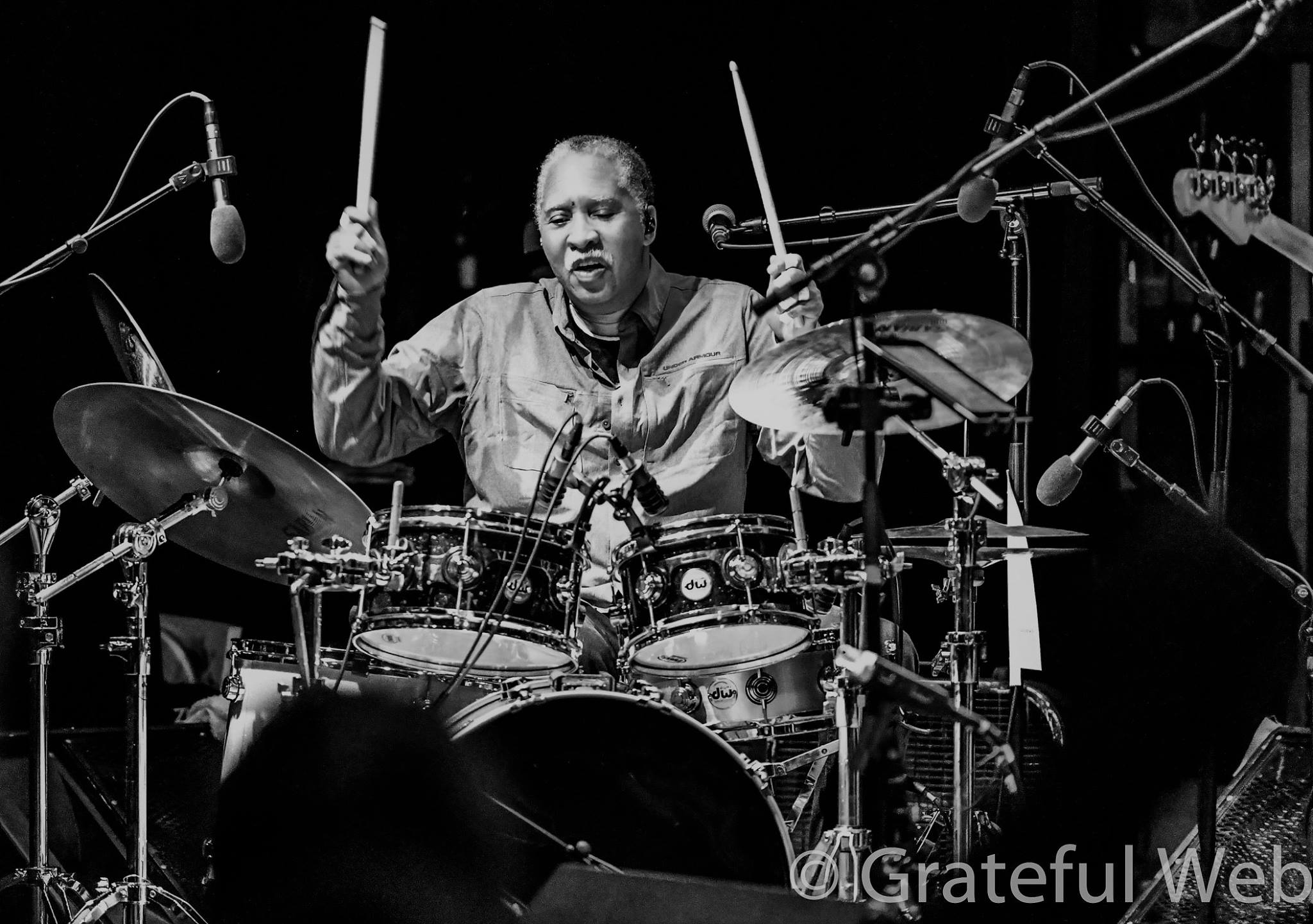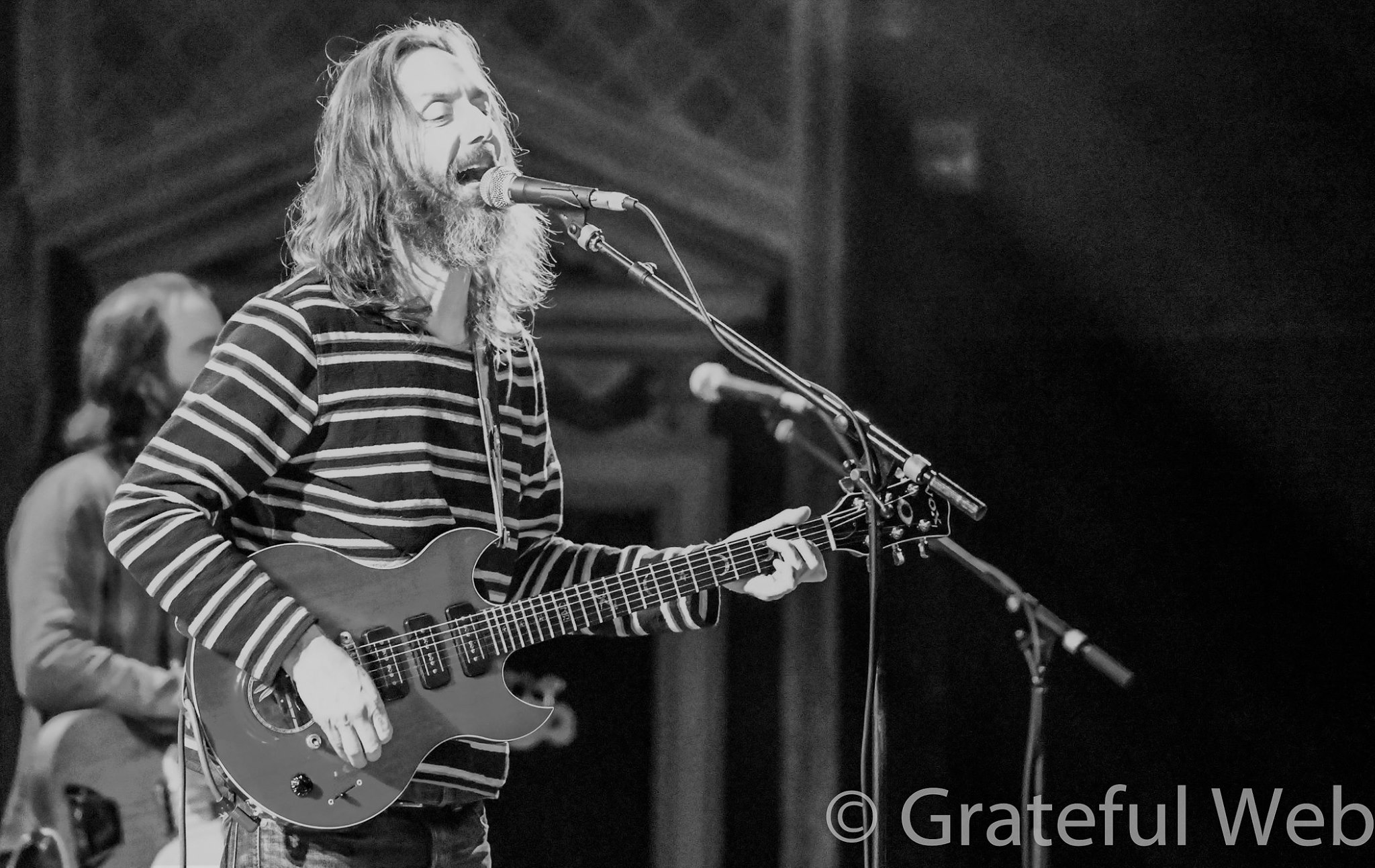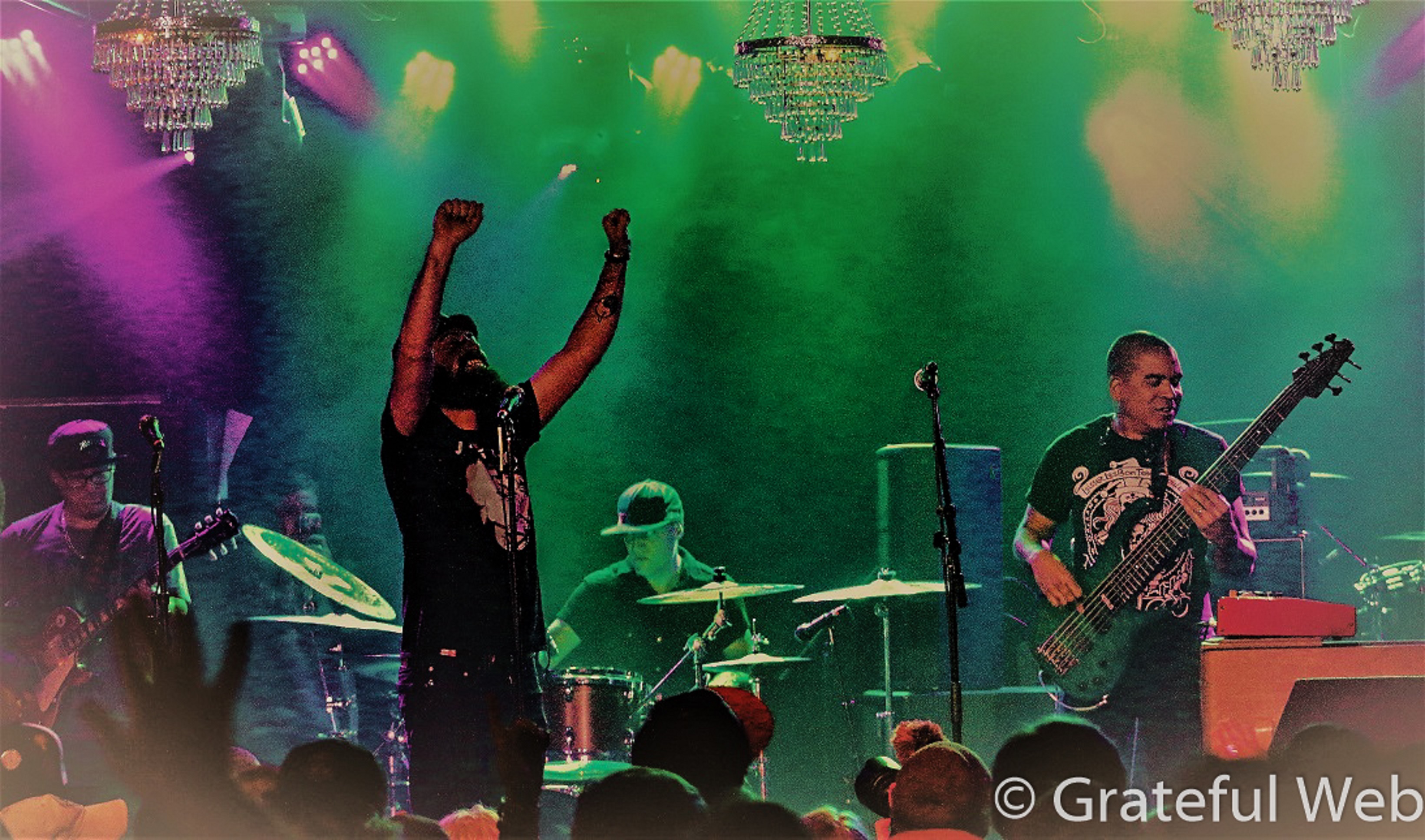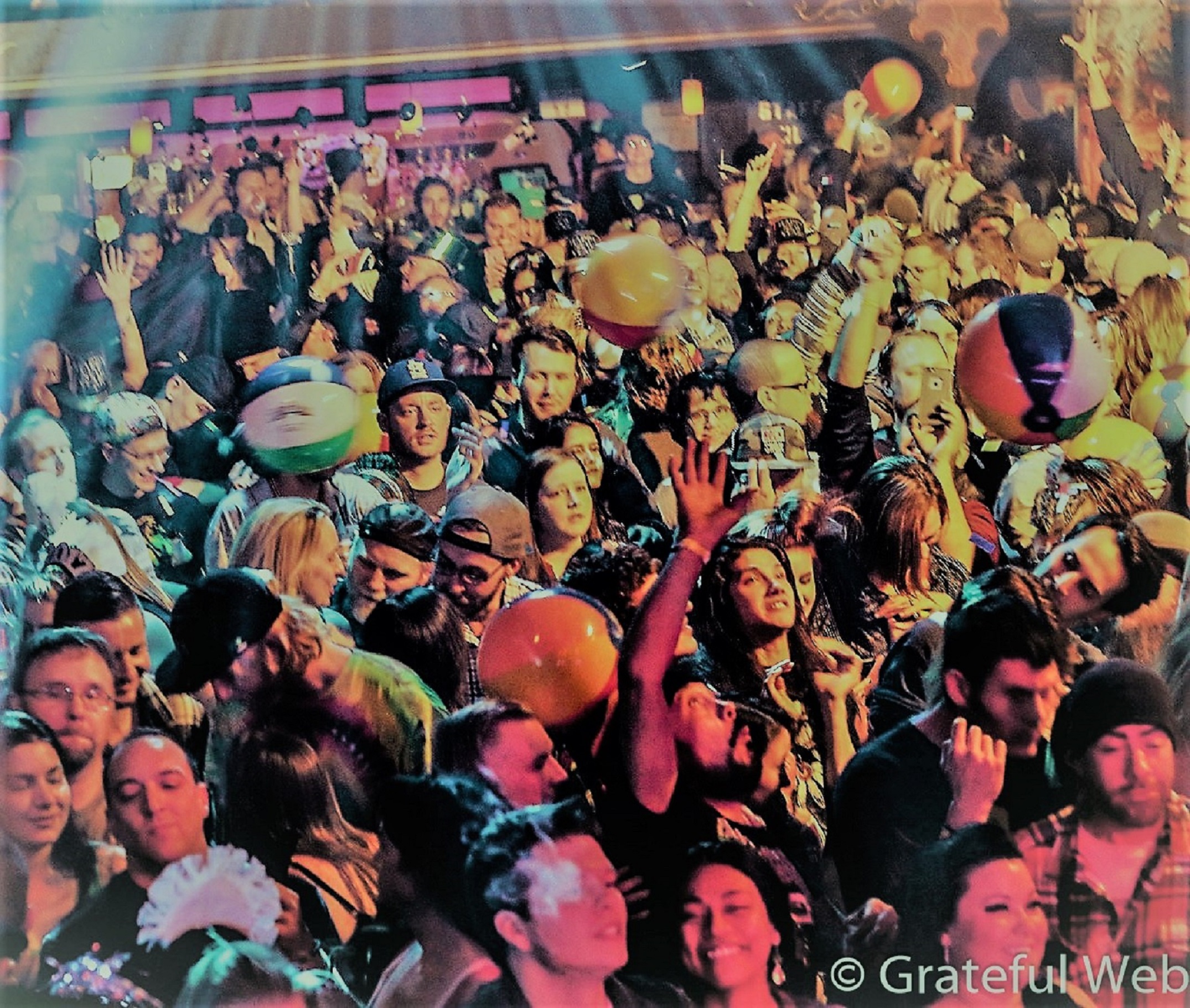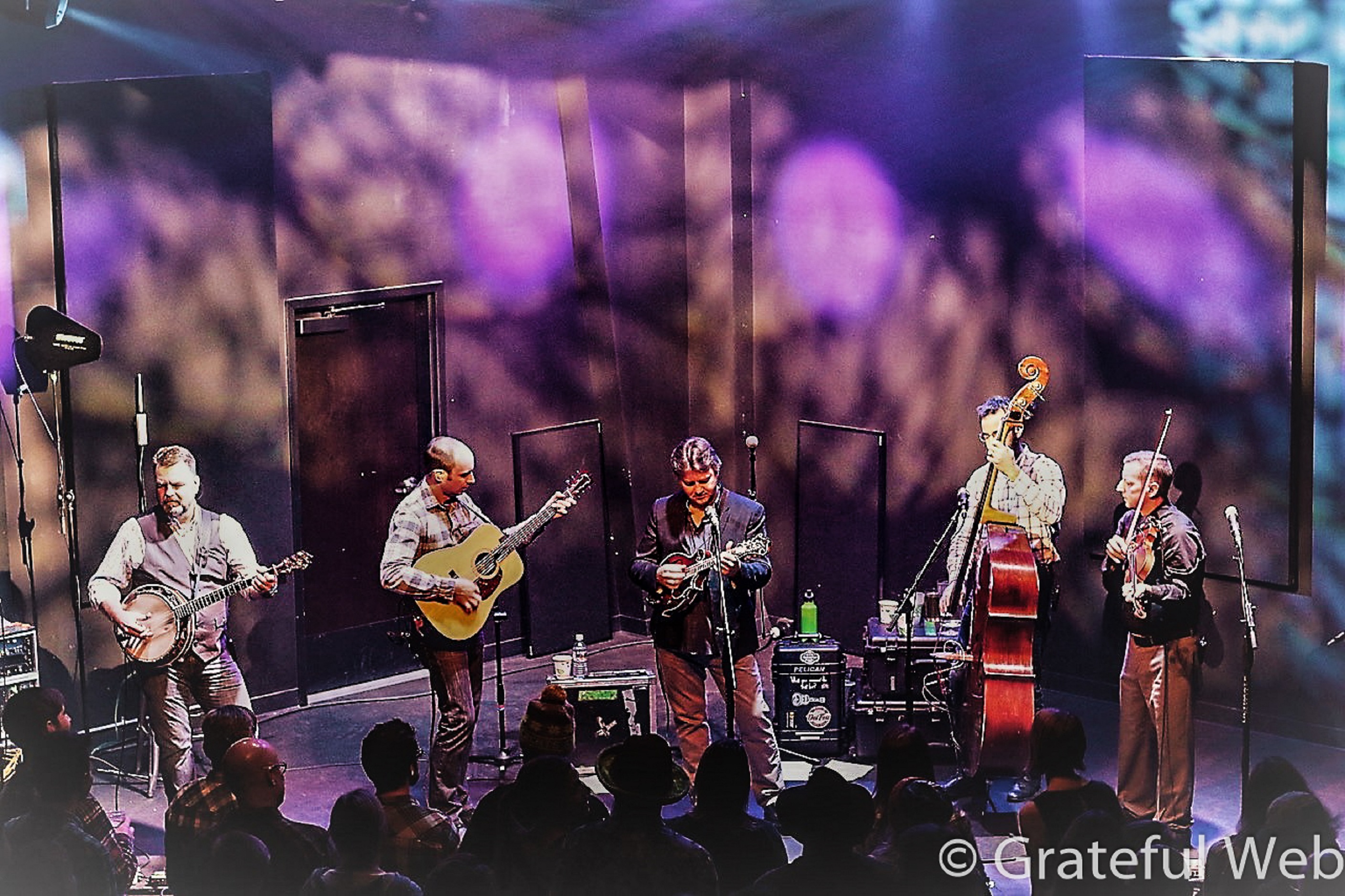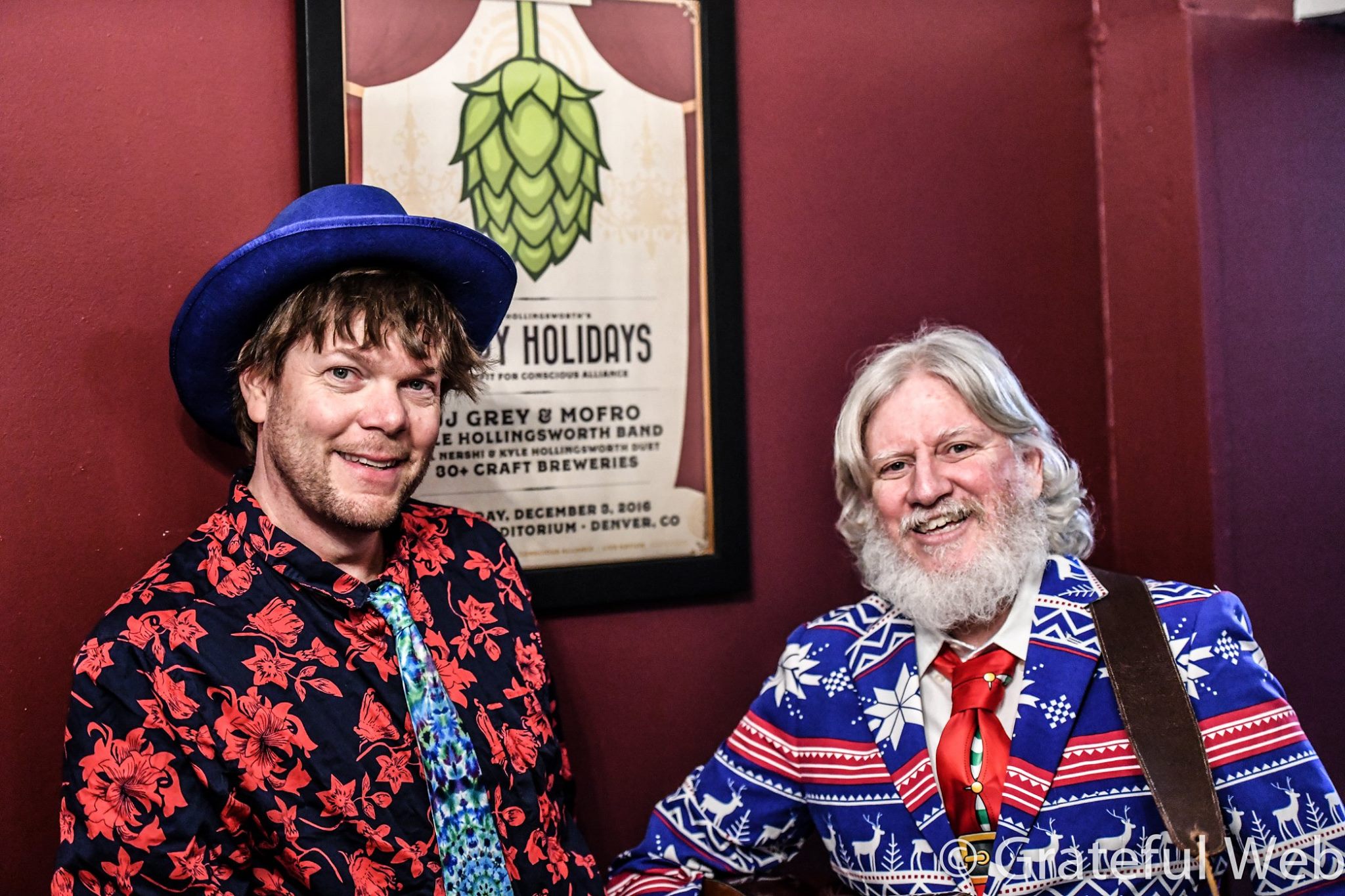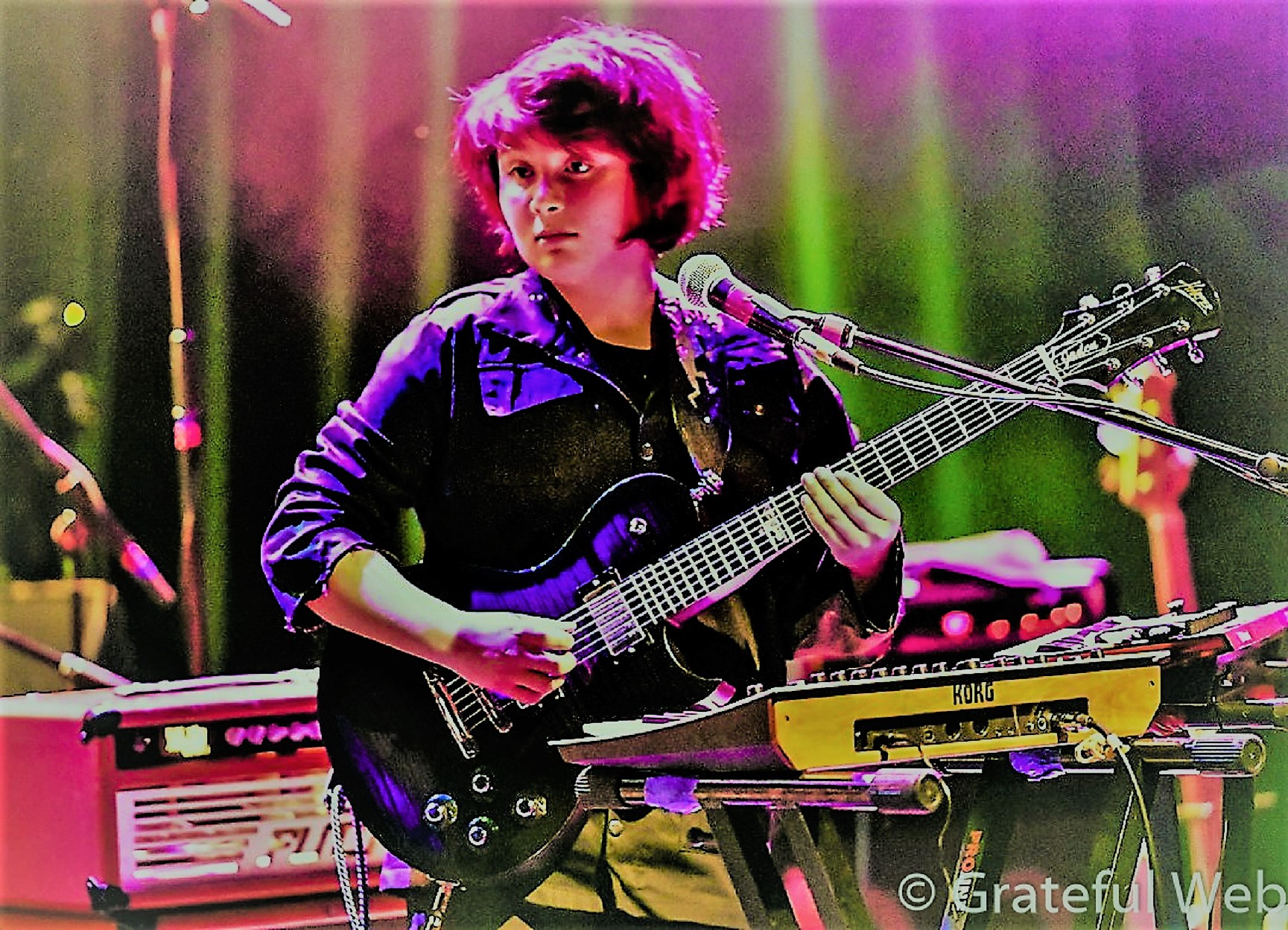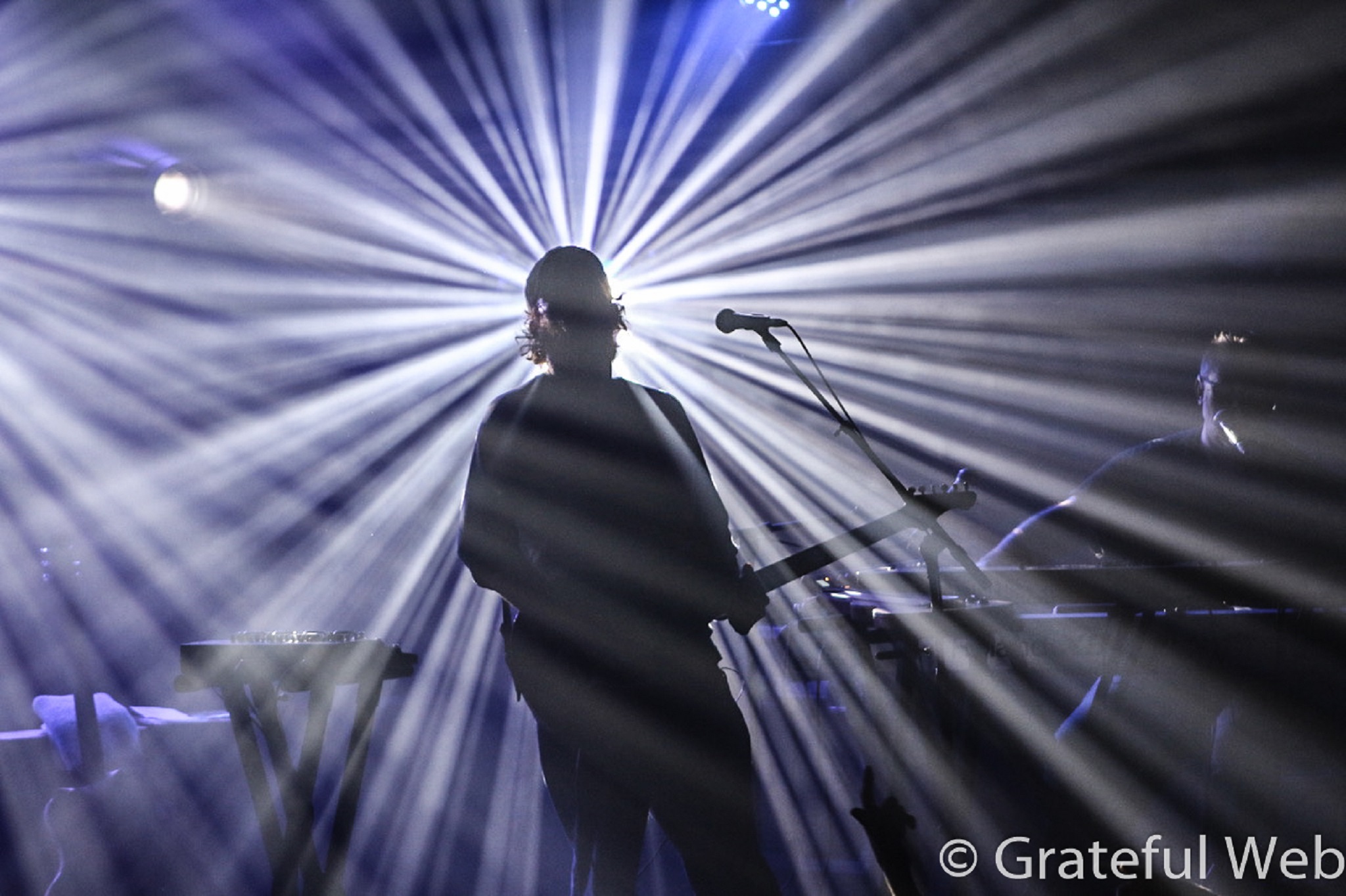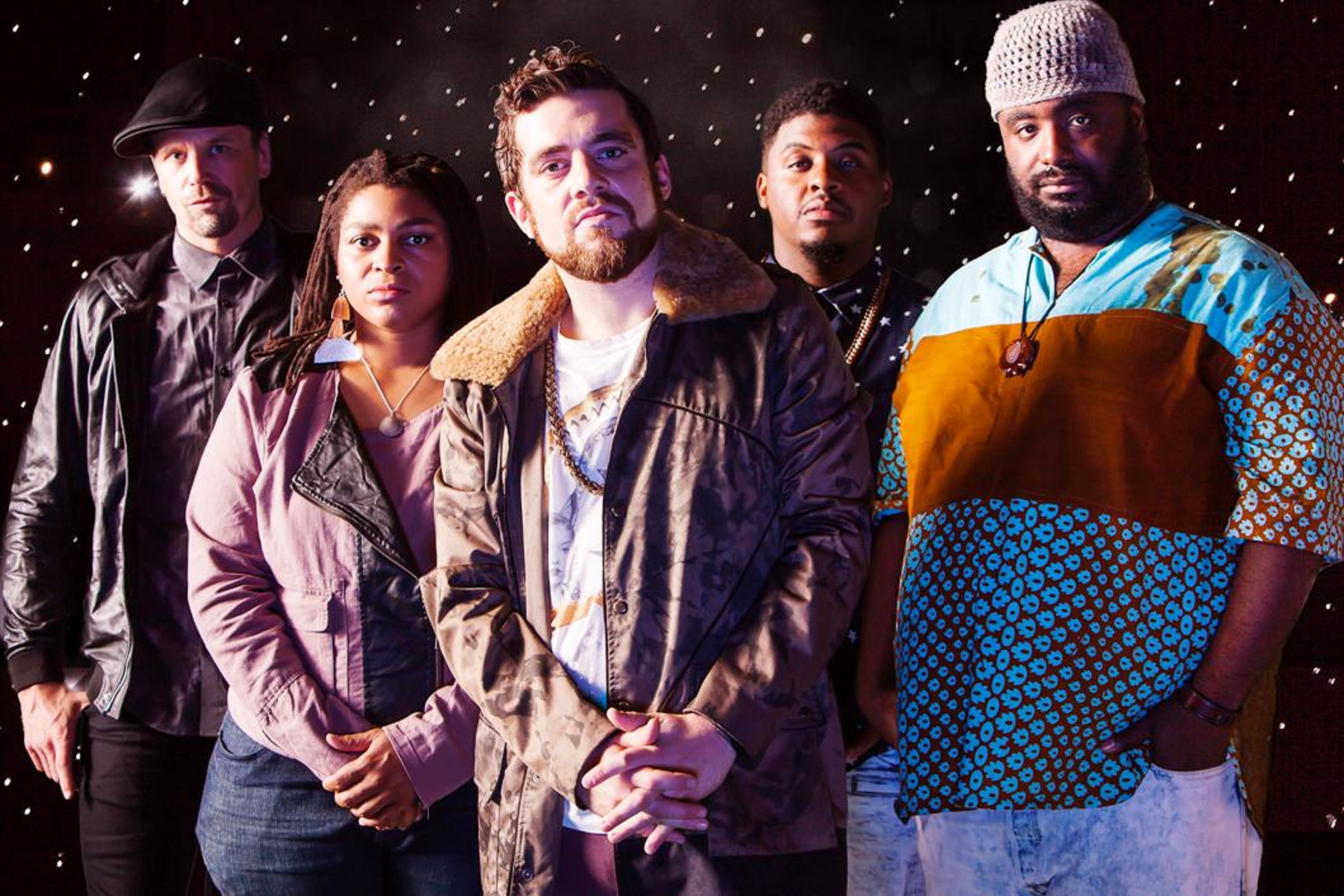Onetime Colorado resident CR Gruver has been on a roll recently. The New Orleans-adopted pianist is right at home holding down the keys in the New Orleans Suspects, wearing the moniker without hesitation; more a sense of pride. A family man and bandmate that can’t say enough about his musical cohorts, Gruver is credited with writing multiple songs off of their newest release, 2014’s “Ouroboros.” With a gang of players that have performed with countless notable artists, The New Orleans Suspects have watched their pasts dissolve, and their future as a band materialize, and Gruver has been there to see it all. From a “splinter band” to a full-time touring regiment, CR’s delicate piano and burning organ fire is helping people to recognize the band outside of the Crescent City, especially in Colorado, where they’ll perform for two nights at Cervantes in Denver Friday and Saturday March 27th and 28th.
GW: My name is John Schumm with The Grateful Web and I’ve got CR Gruver here from The New Orleans Suspects. Thanks for taking time out of your day to chat with us. How are you, what’s going on?
CR: Things are good. Getting warm down here in New Orleans, it’s really nice.
GW: Its been pretty nice here in Colorado too. It was almost eighty degrees the other day.
CR: It’s always nice in Colorado (laughter). I loved living out there because in the wintertime, sometimes it would be cold and snowy and sometimes it was seventy degrees.
GW: Something is always changing. I see you guys will be out here in Denver next week at Cervantes, on Friday and Saturday.
CR: That’s right.
GW: On the new album that came out this past October, “Ouroboros,” we can hear you playing all sorts of keys and piano. You’re playing personifies the longstanding New Orleans Jazz piano and funky organ. Was that a large part of your musical upbringing, or was that something you got into when you moved down to New Orleans?
CR: It was always part of my playing. Some of my bigger influences were Billy Payne from Little Feat, Chuck Leavell’s playing, even Greg Rolie’s organ playing; you can hear the strains of New Orleans’ organ playing. So it was always something where my ear heard it and I loved the way those guys played. So I said, that’s how I want to play.
My father traveled to New Orleans a couple of times on business and was a music lover. Though he never played music he would bring back records that I could play around the house. So I was raised in Pennsylvania, but surrounded by the music of the city. It was always in my repertoire. Once I got down here was when I could really approach it. Before I was really kind of faking it…
GW: So would you say the music and that style of music led you to New Orleans?
CR: I would say maybe on a cosmic level, in some weird way (laughter). It was coincidental that I ended up here, but when the opportunity presented itself I was very excited to come down. It was through my wife, we were dating out in Colorado and she wanted to be closer to her family. We were actually set up to move to Charleston with my band at the time, Polytoxic, but we broke up over the summer and Laurie and I had already made arrangements to move. So she said would love to be closer to her family and they live in New Orleans, so of course with my history of music down here I said, ‘can we leave tomorrow?’ It was a very fortunate, kind of synchronistic, that I ended up down here.
GW: It’s one of my favorite cities to travel to; there are artists on every corner. Your band, the New Orleans Suspects, is made up of all of these musicians that have been around the block with multiple groups in NOLA. With such a huge pool of musicians in the city, how did this cemented lineup come together?
CR: Oh man, this is something that happened at a bar called the Maple Leaf, which is a neighborhood bar we all live within a mile of, and some of us within a block. We all played there with different projects here and there, and the owner, Hank Staples, had a night where a band didn’t show up or he forgot to book a band. You know, things happen down here; things are a little looser. So he had a night with no band and he would call us by virtue The Usual Suspects, which included our guitar player Jake (Eckert), our bass player Reggie (Scanlan), and he’d say ‘hey, throw a band together for me tonight.’ The Suspects were actually kind of a pickup band. We don’t have to be in town. Reggie called Jake; Jake called me. I knew Jake just from being in the neighborhood. At the time there was another drummer named Kevin O’day, who actually moved to California, and that’s when we got Willie Green, who I’d played with in other projects. We were basically a band at The Maple Leaf, and we would do shows like that over the course of the year.
Our guitar player Jake was building a studio in his backyard, so on other occasions when we were all in town we’d get together in the studio and record some tunes to literally test out some of the new equipment: a new pre-amp or microphone, and we’d see how it sounds. So our first record is actually made up of songs recorded through the process of building the studio. We had most of the songs recorded by the time we became a full time band at the end of 2011. So really it was kind of happenstance, kind of serendipitous, but there was something about our chemistry that we kept coming back to and saying, ‘we’ve all been with a hundred projects, but there’s something weird, or special,’ that we felt, and other people felt too.
GW: You mentioned the chemistry. You can definitely hear it coming out of the surface of the new album. I was checking out the sleeve the other day and I noticed you personally wrote a few of the songs, lyrics and music, and I was wondering if it’s more of a collaborative process with you guys where you do it all together, or if one guy brings something in and you work it out from there?
CR: Well Jake and I are the main songwriters at this point, only because we’ve brought more into the band than anybody else. So I’ll bring a song in that has parts: a chorus, a verse, a bridge, and then each member will kind of throw his flavor into it; a riff here and there, and arrange it and play through it a few times. The chord structure is usually done by one guy and then the band fleshes it out. There are a couple of songs on that album, “Yo Flambeaux!” is one of them, where the drummer came up with the drum beat and an idea for a horn line, the rhythmic horn line. I had a bridge that was floating around in my head, and the bass player actually came up with the lyrics, “Yo Flambeaux,” because he was talking about pictures he had taken at Mardi Gras one year. So that was truly a collaborative effort. It’s collaborative in a sense that final product is all of us putting our heads together with an essential idea and fleshing something out.
GW: I like that; it’s cool to see it coming from a pickup band to this now. Its really come full circle, for lack of better terms.
CR: What you just said is why we called the record “Ouroboros,” because we’re all from different places; we’ve all had pasts and other lives with other bands, especially Reggie with the Radiators and Willie Green with the Neville Brothers and Jeff Watkins with James Brown. Those are thee huge bands, and once those bands stopped it was kind of like, in a sense, the death of who they were. This band is the rebirth of something new coming from that, as well as the whole thing coming full circle, from starting as what they call a “splinter group” down here, because there are a thousand musicians in ten thousand bands in New Orleans. There are all of these conglomerations of guys from different bands forming bands temporarily. It happens all of the time down here, and quickly. So the “Ouroboros” feeling and philosophy kind of captured all of that into being something that rises from the ashes, so they say.
GW: I’m looking forward to seeing that at Cervantes next week.
CR: Yes, we always love playing in Denver.
GW: It always seems like Denver has a great reception to all sorts of music, and it sounds like you’ve been here many times, as well as living here. Where was that?
CR: I lived in Denver for six years.
GW: So I’m going to be on the phone with Reggie (Scanlan) here in a few minutes. Do you have anything to say about him before I do that?
CR: He’s one of the hardest working musicians out there, really. I’ve seldom met a musician that’s as passionate about playing music as Reggie Scanlan. It’s really impressive. He’s so driven to play music. Being from a big band like The Radiators…a lot of musicians that reach that level of success become lackadaisical or, I don’t know if snobby is the right word, but they don’t want to be bothered with small talk. Reggie will play anywhere or anytime with anybody who plays an instrument, and it’s truly something to be inspired by.
GW: It seems like he really doesn’t stop, ever.
CR: No, he doesn’t. He had pancreatic cancer that would put most people down, and he did to rest for a month. He was on an operating table for over sixteen hours as they removed his pancreas, and one month to the day of his operation he was playing with us at Jazz Fest on the Acura Stage (laughter). That’s his everything, and now he’s stronger than he was then. It’s amazing.
GW: Wow. Damn. Well CR, thanks for chatting.
CR: Yeah John thank you for taking the time.
GW: I look forward to catching you guys at Cervantes next week.
CR: Come say hi!
Be sure to keep an eye out for longtime Radiators bass player Reggie Scanlan’s interview with The Grateful Web where he talks about the state of The New Orleans Suspects, photography, and life itself from the warm weather of his New Orleans home.





